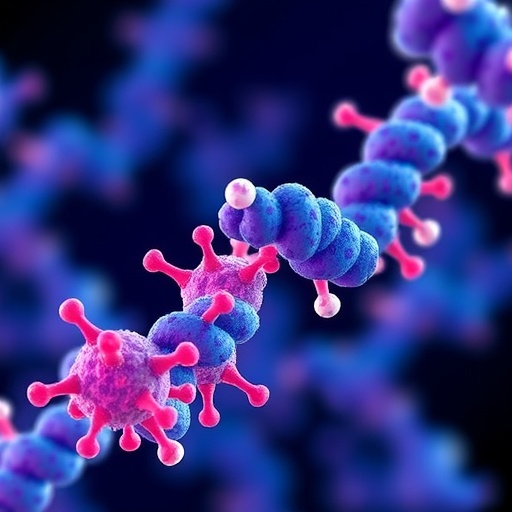In the evolving landscape of oncology, therapeutic antibodies have emerged as monumental agents in the fight against cancer. Their ability to specifically target and eliminate cancerous cells while sparing healthy ones has led to substantial advancements in treatment efficacy. Nevertheless, optimizing the clinical application of these biological drugs necessitates an in-depth understanding of their pharmacokinetics and pharmacodynamics. The recent work by Yao, Lee, and Zhou sheds light on the intricate modeling of these parameters, revealing exciting new insights that could shape the future of cancer therapies.
Pharmacokinetics, the study of how drugs are absorbed, distributed, metabolized, and excreted from the body, provides crucial information for the effective deployment of therapeutic antibodies. Current research emphasizes the need for precise pharmacokinetic models to predict how antibodies behave in various patient populations. Factors such as body size, age, and underlying health conditions can all significantly impact how a patient responds to therapy. This variability underscores the importance of individualized treatment paradigms in the oncology domain.
In conjunction with pharmacokinetics, pharmacodynamics—the study of the biochemical and physiological effects of drugs—plays a critical role in understanding the therapeutic window of antibodies. Therapeutic antibodies often exert their effects through complex mechanisms, including direct inhibition of tumor growth, antibody-dependent cellular cytotoxicity, and complement-dependent cytotoxicity. Unraveling the pharmacodynamics involved in these mechanisms is essential for understanding how different patients will respond to specific therapies.
Yao et al. navigate these complex pharmacokinetic and pharmacodynamic relationships in their novel modeling approach. By employing sophisticated statistical techniques and computational simulations, the researchers have developed models that can predict therapeutic outcomes more accurately. These models take into account various biological factors, enabling tailor-made treatments that can enhance efficacy while minimizing adverse effects.
One of the most significant challenges in therapeutic antibody development is the phenomenon of target saturation, where an increasing amount of drug does not lead to a proportional increase in therapeutic effect. This complicates dosage regimens, as finding the optimal dose that remains effective without toxicity is often a trial-and-error process. The research by Yao and colleagues aims to clarify these relationships further, potentially bridging the gap between experimental findings and clinical applications.
Looking ahead, the integration of artificial intelligence and machine learning with pharmacokinetic/pharmacodynamic modeling could revolutionize the field of oncology. By synthesizing vast amounts of data, AI-driven algorithms can enhance predictive accuracy, offering actionable insights into patient-specific treatment plans. This represents a paradigm shift in how personalized medicine can utilize advanced computational techniques to deliver tailored oncology therapeutics.
The concept of antibody-drug conjugates (ADCs) is another aspect gaining momentum in the realm of therapeutic antibodies. By covalently linking a potent cytotoxic agent to an antibody, ADCs can exploit the specific targeting capabilities of antibodies to deliver the drug directly to cancer cells. The modeling of pharmacokinetics and pharmacodynamics for ADCs is particularly complex, as it involves understanding both the antibody and drug components’ interactions. Future research will need to focus on refining models for ADCs to predict their behavior adequately throughout different biological environments.
The regulatory landscape for therapeutic antibodies is also becoming increasingly intricate. Approvals require comprehensive understanding backed by rigorous clinical trials, but the predictive models can inform trial designs, leading to better outcomes and more efficient regulatory processes. Incorporating sophisticated pharmacokinetic/pharmacodynamic modeling early in the development process could streamline the path to clinical approval, ultimately bringing these lifesaving therapies to patients faster.
Moreover, the concept of biobetters—improved versions of existing therapeutic antibodies—is gaining traction as researchers explore ways to enhance efficacy and reduce side effects. By utilizing pharmacokinetic/pharmacodynamic frameworks, scientists can systematically evaluate the improvements made in these new iterations, guaranteeing their potential value is established and communicated effectively to healthcare providers.
The research efforts encapsulated in this latest study signify not just a step forward in understanding cancer therapeutics but also a reminder of the importance of continuous innovations in drug modeling. It challenges the scientific community to look beyond the traditional frameworks and embrace new methodologies that could ultimately lead to more effective therapies and better patient outcomes.
In conclusion, the journey toward understanding the pharmacokinetics and pharmacodynamics of therapeutic antibodies embodies the forefront of oncology research. As advancements continue to emerge, they hold promise for an era of personalized cancer therapy that is more targeted, effective, and safe. The work of Yao, Lee, and Zhou serves as a beacon for the future of this critical research, urging further exploration and refinement in an ever-evolving clinical landscape.
As the battle against cancer continues, the integration of cutting-edge modeling techniques will be essential for developing the next generation of therapeutic antibodies. With continuous advancements in technology, scientific understanding, and regulatory pathways, the potential for life-saving treatments is more robust than ever.
In essence, we are only beginning to scratch the surface of what might be achieved through pharmacokinetic and pharmacodynamic modeling in oncology. The insights gleaned from Yao et al.’s work remind us of the power of scientific inquiry in the relentless pursuit of improved healthcare solutions for patients battling cancer.
Subject of Research: Pharmacokinetic and Pharmacodynamic Modeling of Therapeutic Antibodies in Oncology
Article Title: Pharmacokinetic/pharmacodynamic modeling of therapeutic antibodies in oncology: current advances and future perspectives
Article References:
Yao, Q., Lee, Y. & Zhou, T. Pharmacokinetic/pharmacodynamic modeling of therapeutic antibodies in oncology: current advances and future perspectives. J. Pharm. Investig. (2025). https://doi.org/10.1007/s40005-025-00780-4
Image Credits: AI Generated
DOI: 10.1007/s40005-025-00780-4
Keywords: Therapeutic antibodies, pharmacokinetics, pharmacodynamics, oncology, personalized medicine, antibody-drug conjugates, biobetters, cancer treatment, modeling, predictive analytics.
Tags: advancements in antibody modelingantibody-targeted therapy techniquesbiochemical effects of therapeutic antibodiescancer treatment efficacyfuture of cancer therapiesindividualized cancer therapyinsights from Yao Lee and Zhou researchmodeling parameters for antibodiespatient variability in antibody responsepharmacodynamics in cancer treatmentpharmacokinetics of therapeutic antibodiestherapeutic antibodies in oncology





